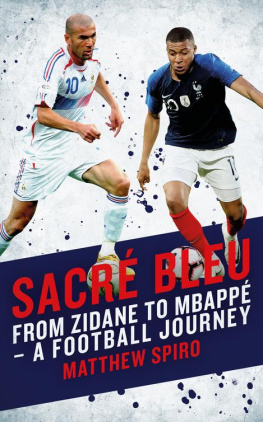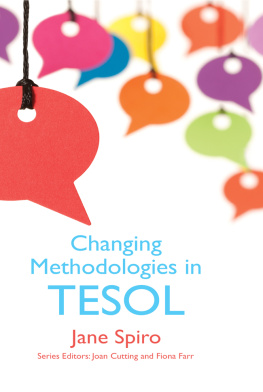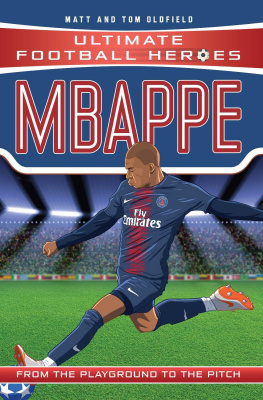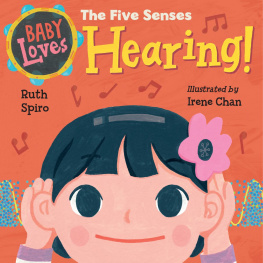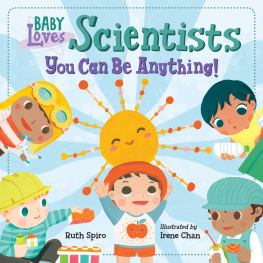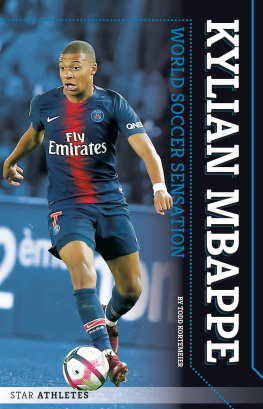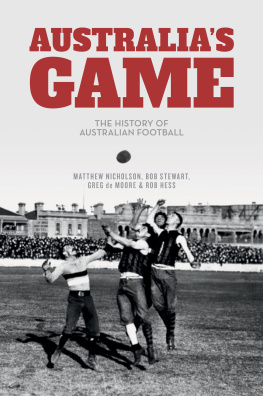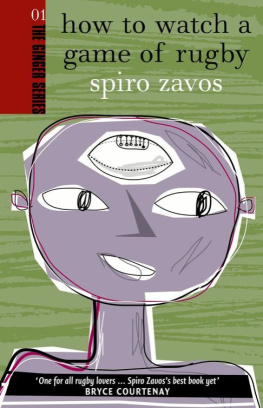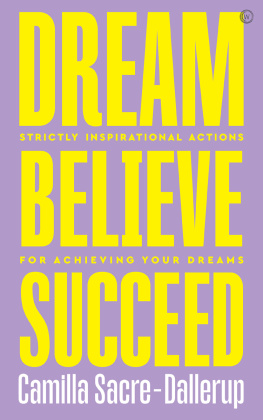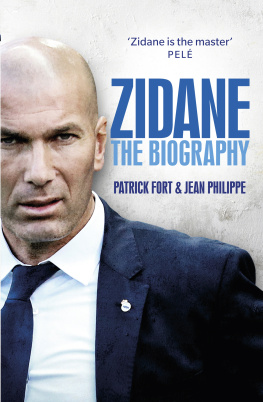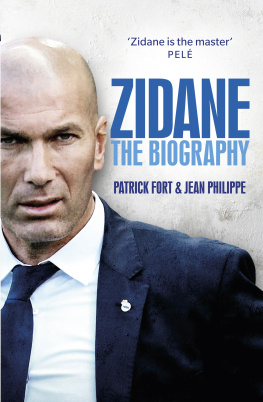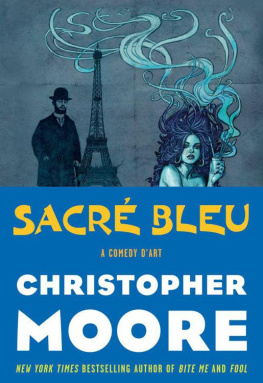Spiro Matthew - Sacre Bleu: Zidane to Mbappé A football journey
Here you can read online Spiro Matthew - Sacre Bleu: Zidane to Mbappé A football journey full text of the book (entire story) in english for free. Download pdf and epub, get meaning, cover and reviews about this ebook. year: 2020, publisher: Biteback Publishing, genre: Home and family. Description of the work, (preface) as well as reviews are available. Best literature library LitArk.com created for fans of good reading and offers a wide selection of genres:
Romance novel
Science fiction
Adventure
Detective
Science
History
Home and family
Prose
Art
Politics
Computer
Non-fiction
Religion
Business
Children
Humor
Choose a favorite category and find really read worthwhile books. Enjoy immersion in the world of imagination, feel the emotions of the characters or learn something new for yourself, make an fascinating discovery.
- Book:Sacre Bleu: Zidane to Mbappé A football journey
- Author:
- Publisher:Biteback Publishing
- Genre:
- Year:2020
- Rating:5 / 5
- Favourites:Add to favourites
- Your mark:
- 100
- 1
- 2
- 3
- 4
- 5
Sacre Bleu: Zidane to Mbappé A football journey: summary, description and annotation
We offer to read an annotation, description, summary or preface (depends on what the author of the book "Sacre Bleu: Zidane to Mbappé A football journey" wrote himself). If you haven't found the necessary information about the book — write in the comments, we will try to find it.
Sacre Bleu: Zidane to Mbappé A football journey — read online for free the complete book (whole text) full work
Below is the text of the book, divided by pages. System saving the place of the last page read, allows you to conveniently read the book "Sacre Bleu: Zidane to Mbappé A football journey" online for free, without having to search again every time where you left off. Put a bookmark, and you can go to the page where you finished reading at any time.
Font size:
Interval:
Bookmark:
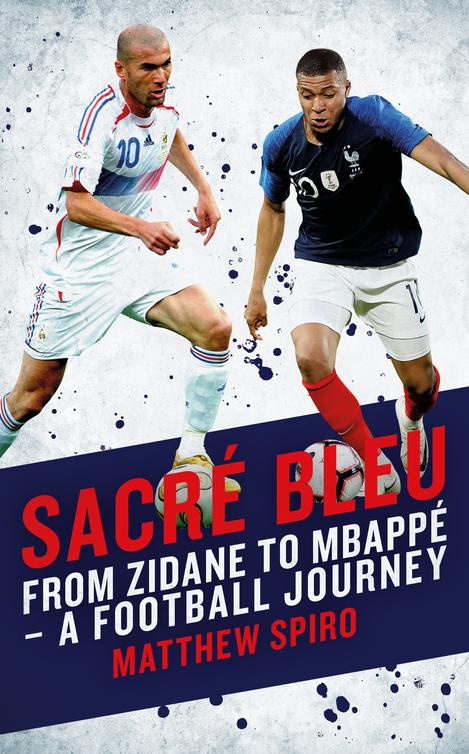
v
To va, Lucie and Alice
vi
F or French people, watching the national team has been an emotional experience in recent years. The player strike at the World Cup in 2010 was a terrible low. You could say that Knysna was like our Waterloo. It was a sad period for everybody who loves French football. But it was also an opportunity to make a fresh start, and I believe we learned from it. We thought: This cannot be allowed to happen again. The players have to behave better. It proved to be a good learning curve for us.
In 2018, I always thought France would win the World Cup. Why? Because physically the team was fantastic, and they had a good balance between physical power and technical ability. The longer the competition went on, the more this physical power took over. Even within the matches, the longer they lasted, the more they were able to dominate their opponent physically. It is simple, if I play against Kylian Mbapp and in the first twenty minutes he runs at me at 90 per cent, I have to go at 110 per cent to stay with him. If after an hour he goes at 100 per cent, then I can no longer stay with him!
Mbapp is of course very important. It has felt like God had sent us this boy to show us how to play and how to behave. He typifies what French football is about. He is a boy who has received a very good education. His parents are sports people his mother was an international handball player and his father x was a football coach and they clearly educated him well. But he also has something inside him, something he was born with. We have seen great young football players before, but when you hear Mbapp doing his first interview at eighteen, and you feel like he has been doing that his whole life, you realise he is different. This is not something that he learned. He was born to do this. Of course he has the footballing talent, but what is needed today to be a star is the ability to communicate with the rest of the world from one single interview. And he has that.
What we are currently seeing is that through immigration France has a huge opportunity. The absolute heart of the national team is made up of players from immigrant backgrounds who have been educated in the French game. Im talking about Paul Pogba, NGolo Kant, Blaise Matuidi, Kylian Mbapp and Samuel Umtiti. This isnt new. Historically the successful national teams have always had strong links to immigration, from Raymond Kopa, Michel Platini and Zindine Zidane, to Mbapp and Pogba. So of course we are lucky to have so many fine players with origins from big football countries like Senegal, Cte dIvoire, Mali, Cameroon, Algeria, Morocco and Tunisia.
In France, young players often learn their skills by playing football against each other in their home suburbs. I believe 60 per cent of professional players in France come from the Paris suburbs. That is incredible! I remember when I was Monaco coach, I asked Lilian Thuram to explain to me what his childhood was like. He said that after school, it was football, football and more football. He played together with people from all sorts of different backgrounds. It was tough and there were many good players. You have to be strong to survive in those conditions because there is a real competitive edge. You want to prove you are the best, and youre playing with kids who are ready to fight to show you that youre not. So the guys who come out from there, they are ready for the fight. I believe the football education they receive gives them great mental strength. xi
As a parent, when you educate your children you think you absolutely want to protect them from danger. But actually the best thing to do is to get them to fight against disappointment and adversity. This is the best preparation for life. Their hunger to achieve will be high and they will have developed their capacity to fight. Thats not something you get taught in the best schools.
For many years, France has been good at developing young players. When I was the Arsenal manager, I knew that if I took a player from France he would be at the physical level required to perform immediately. France has been ahead of the game in this respect. The other advantage that France coach Didier Deschamps has is that French players get to play from a young age in Ligue 1. They play, then as soon as they do well they leave for other leagues. When they leave Ligue 1 they are well prepared. This then opens the door for somebody else and thats why we have so many good young players.
The big problem in England is in the category of players aged between seventeen and twenty-one. In England, they scout well and they coach well. But the integration of young players into the first team is often not successful because the competition for places is too high, the level of performance in the league is too high and the pressure put on the managers to succeed is too high. The last part of a players education is gained in competition. In France, unlike in England, the players get the opportunity to compete.
Looking forward, I think this generation of French players has the chance to create a legacy. Usually when a team wins a World Cup, it is the end of an era. But in 2018 the France team was full of young players. It was the start of an era. When it comes to players, we are spoilt for choice. Look at the last World Cup; Anthony Martial didnt make the cut. He plays for Manchester United, which is not a small club. Alexandre Lacazette didnt make it. Basically they had too much choice! Its just a xii matter of finding the right balance because we have no problem with the quality of the individual players. If they find the right balance, and if the team is efficient, they can carry on winning major tournaments.
T he air in the Kazan Arena feels heavy. Even the 23,000 boisterous Argentina supporters, beautifully decked out in their Albiceleste colours, have somehow been calmed by the slow and tentative start to this round of sixteen tie. The first glamour match-up of the World Cup has been suitably hyped, but amid the heat and humidity of this stifling afternoon, the reality of Frances hopes looks to be hitting home.
The French fans I had met in Kazans vibrant city centre that morning seemed largely resigned. Most complained about Didier Deschampss negative tactics and team selections, and some had already booked flights home for the next day. Despite boasting several of the most exciting attacking individuals on the planet, Les Bleus had limped unconvincingly through the group stage. Paul Pogbas deflected effort accounted for Australia, the team clung on grimly to a 10 lead against Peru and then featured in one of the dullest games in the history of the World Cup against Denmark.
As 7,000 France fans roundly booed their players off after that stultifying goalless stalemate at Moscows Luzhniki Stadium, it felt certain that the end was nigh for Deschamps. Indeed, many in France were already looking forward to a brighter future under the nations favourite son Zindine Zidane. The previous month, Zizou had surprised everybody by standing down as Real Madrid manager after overseeing a third consecutive Champions League win, and he was now odds-on for the France job.
Yet Argentina were not the force they used to be either. Yes, Lionel Messi had provided a timely reminder of his brilliance against Nigeria to edge the two-time world champions through their group, but this was an ageing team that looked incapable of executing the high-energy pressing game that their coach Jorge Sampaoli demanded. The South Americans had been held to a draw by Iceland and were trounced 30 by Croatia. Few expected them to repeat the feat of four years previously when they reached the final in Rio de Janeiro.
Font size:
Interval:
Bookmark:
Similar books «Sacre Bleu: Zidane to Mbappé A football journey»
Look at similar books to Sacre Bleu: Zidane to Mbappé A football journey. We have selected literature similar in name and meaning in the hope of providing readers with more options to find new, interesting, not yet read works.
Discussion, reviews of the book Sacre Bleu: Zidane to Mbappé A football journey and just readers' own opinions. Leave your comments, write what you think about the work, its meaning or the main characters. Specify what exactly you liked and what you didn't like, and why you think so.

